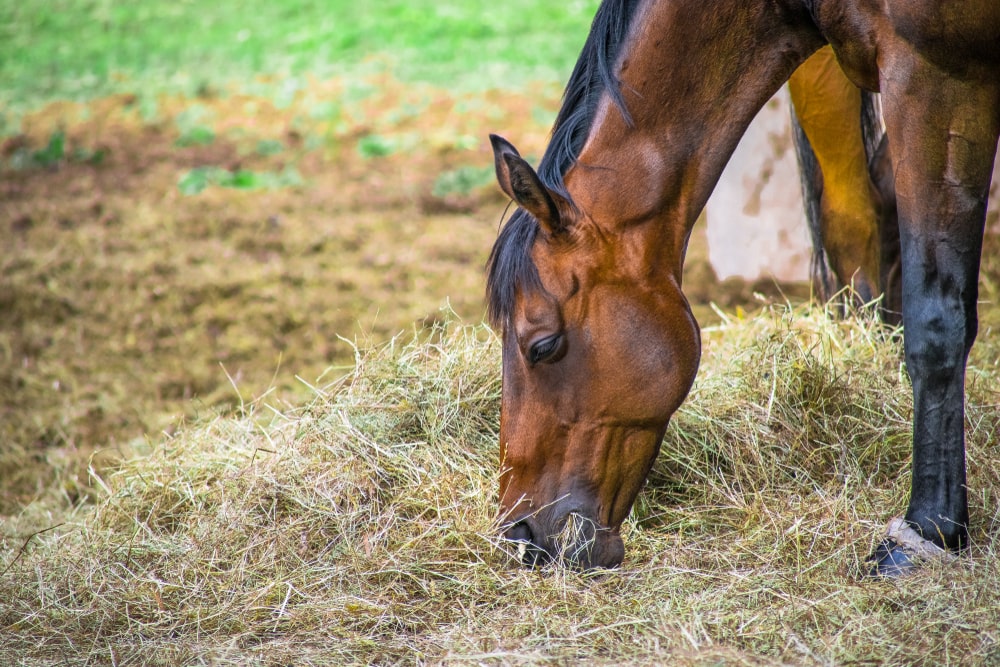The Benefits of Feeding Fat to Horses
By Maria Rondon
Head of Health Sciences at LCAO
Over the years, breeders have been increasingly more interested in feeding equines with fat-based diets. Given the fact that horses do not have gallbladders, myths say that they can take advantage of diets with fat, due to their constant production of bile. Moreover, recent research has shown that a diet based on fatty acids has multiple beneficial effects on equines and may even enhance the life of breeding and performance horses. Let’s describe those benefits!
WHAT IS FAT
First of all, let us define a simple term: what is fat? When talking about fats fed to horses we mean triglycerides, which consist of three fatty acid molecules attached to a glycerol molecule. Whether the fat is saturated fat or unsaturated oil is determined by the chemistry of the fatty acid molecules.
Among the unsaturated fats (commonly referred to as oils) usually fed to horses, we can find corn oil, soybean oil, and canola oil. Saturated fats, on the other hand, can include lard or tallow, and they usually originate from animals.
SOURCES OF FAT
It is quite uncommon for saturated fats to be used by commercial grain concentrates for horse feeding. Usually, these use unsaturated fat or vegetable oil to supplement their diet.
Several sources of vegetable oils used to feed or supplement a horse’s diet go anywhere from 6% to 100% fat. Depending on the feed, you may find soybean, canola, corn, or even rice oil, which can reach up to 100% of fat in their contents. Another source can include stabilized rice bran which reaches up to 20% fat.
More recently, fish oil with Omega 3 and 6 has been tried on horses, but horses usually don’t find it tasteful.
IS FAT DIGESTIBLE BY HORSES?
Horses are capable of digesting vegetable oil from the aforementioned sources. The oils are digested in the small intestine, and horses can digest large amounts of oil, up to 20% of the total diet. This is due to the constant production of bile from the liver, which is continuously secreted to the small intestine during digestion.
HOW MANY CALORIES CONTAIN THE FATS?
Vegetable oil is the most caloric-dense element in a diet for horses. It contains up to 150% more energy than its equivalent weight in oats or 130% more energy than its equivalent weight in cracked corn.
IS FAT SAFE TO FEED?
When trying to feed your horse with fat supplements, always take into account that you should carry over a 14-day adaptation period in which you have to control how much you are feeding it to your horse. Horses that are not used to being fed fat may reject the feed or may go through a case of digestive problems, such as transient diarrhea.
Nonetheless, over-supplementation of dietary fat does not result in cases of colic or laminitis as it happens with grains. You should not be afraid of feeding fats to your horse, as what’s considered a “high fat” diet may feed your horse up to 20% of their calories in fat, whereas a usually a typical diet in humans contains 40% fat. Researchers so far have not found a link between Coronary disease in horses and a high-fat diet, unlike in humans.
HOW MUCH FAT CAN BE GIVEN TO A HORSE?
Horses are capable of digesting large amounts of fat. In carefully controlled scientific experiments, horses have been fed as much as 230 g of oil per kg of diet, or approximately 11 cups of oil per day. Practically speaking, the maximum amount of oil top-dressed to feed would not exceed 2 cups per day for a 1000 lb horse. More oil can be fed in special circumstances, but all sources of fat should be gradually introduced into the diet to avoid feed refusal and diarrhea.
POTENTIAL BENEFITS
Fat can supplement oats and corn to provide additional energy to a high-energy demanding horse. Not only that but replacing a portion of your typical rice/grain-based diet with vegetable oil can help out in mitigating the risk of digestive disorders commonly associated with starch-rich grains.
This means that a fat-supplemented diet can result in a safer feeding alternative to traditional grain mixes used in diets to get thin horses to gain weight.
Horses that have been contraindicated grain diets, such as horses with a past history of laminitis, can also be supplemented with fat to avoid causing any more harm to the horse by having it meet its caloric demands while not excessively feeding it forage.
Anecdotal claims by breeders and farmers compiled in papers report that these high-fat diets make horses calmer and more level-headed compared to traditional feed with no fat added.
Fat also provides the horse with a source of essential fatty acids and aids in the absorption of fat-soluble vitamins, such as vitamins A, D, and E.
Compared to humans, fat is not something that has to be cut out from a horse’s diet to maintain it health. It can help increase their caloric intake, provide vitamins, and help them keep a balanced diet without having to abuse grain supplementation, thus reducing the risk of suffering gastrointestinal problems. While not all horses require fat supplementation in their diets, it’s always a nice possibility to keep them sound!
Source: https://training.ifas.ufl.edu

